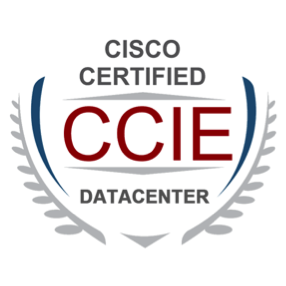
Another one of those choices… Last time I wrote about how it feels like to be working for Cisco, and how great of a company culture we have here. I also promised there will be time to write on technical topics later. And I am doing this now – kind of.
Why “kind of”? Well, let’s say this post will be a segue to more technical topics (don’t worry though, I won’t stop with the softer ones – but an engineer writing solely on people topics would rise a few eyebrows, I am sure ;)).
Cisco certifications, then. Let me start with a disclaimer: I am not one of those 4xCCIEs. I am not even a 1xCCIE (although that’s work in progress) – then again, this is not going to be a tutorial on how to pass the exams, just a reflection on the certifications as a whole, so I don’t think not having at least one CCIE significantly undermines my authority here.
Which certifications do I have under my belt? I passed CCNA, CCNP, CCDA, CCDP and NPD so far – the first two being the staple Routing & Switching certifications, the second two focusing on overall network design. If the last does not seem familiar, that is fine, as this specialist certification (Network Programmability Design) was introduced about a year ago and focuses on SDN and ACI. If this is too many acronyms in one paragraph, I am sorry – this is Cisco after all. 🙂

My only current certification goal. Soon, soon… (if by “soon” we mean a year or so)
I always thought that there are certain “table stakes” networking certifications that you should get if you are serious about a career in networking, such as CCNP R&S. CCDP as well if you work in pre-sales like myself. Now I am more of the opinion that nothing beats experience – especially having tapped into the experience of my more senior colleagues. This is not to say certifications are unimportant. I still think they are very valuable – for someone who wants to solidify their knowledge, gain that knowledge in a structured fashion, or someone who simply wants their skills recognised with the most respected certifications on the market, Cisco certifications are the way to go.
Personally, I fall within one of the former categories, and I knew from the get-go that I would like to one day be a CCIE. Given my predilection for Data Centre and Security, the choice was between those two areas – with DC pulling ahead in the end.
So I spent a week or two collecting all the necessary reading, making sure I have access to the lab equipment, and probing all my CCIE-certified colleagues for hints on how to best prepare for the exam – and how to learn the most in doing so. I was quite happy with the result, and the timeframe I set before myself.
Then the exam changed. Well, not really changed yet, but Cisco announced a CCIE DC v2.0 will be rolling out in July 2016. This left me with a choice – either to rush v1.0, or to accept a potentially significant delay in my plans and go for v2.0.
Part of me was upset, but the other part understood. There was no way I would go for v1.0 when there was a massively updated version available. You see, if there is one thing that is hard for the certifications to reflect, it is the volatility of the status quo. It is simply impossible to constantly revise the curriculum and make sure it is 100% up to date. It takes a huge amount of time and a lot of effort, and so it is only done every couple of years or so. What better time to take the exam, then, than shortly after it has been updated?
I am looking down a long, long road ahead, filled with clenched-teeth determination, sacrifices and spending a lot of free time doing hard work – but you know what? I am looking forward to all the fun I will have doing so, and the satisfaction of finally reaching my goal.

An accurate representation of many a study session.
So there we have it – I hope you were not expecting anything profound, as a lot of the above was stating the obvious for the most part. Yet, I felt I wanted to share this in the hopes it helps someone make their mind up regarding their certification choices. Embarking on a Cisco certification journey can be a lot of fun, and can truly enrich your skills and experience as long as you give it your best.
Good luck to everyone who is thinking about pursuing one of the certifications – no matter if CCNA, CCNP or CCIE level – and please, remember to have fun doing so! 🙂